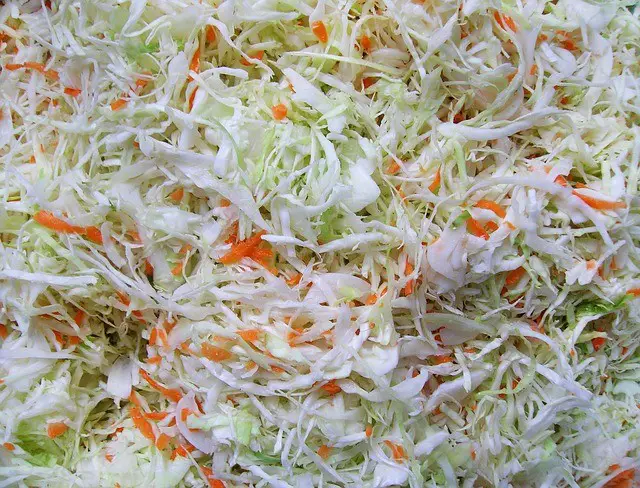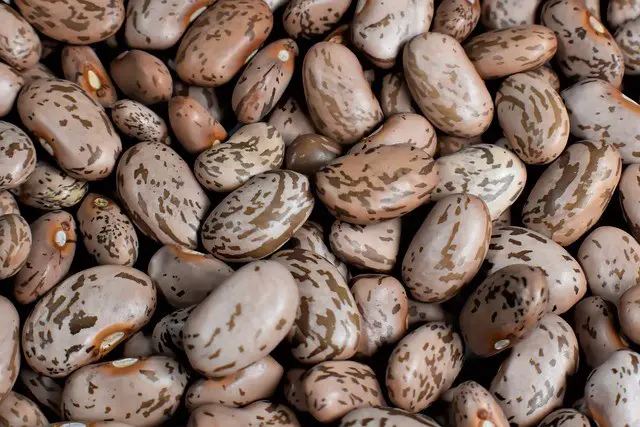Keto net carbs or total carbs?
If you really want to stir up trouble in the world of keto, just raise the topic of total carbs vs. net carbs.
The body breaks them down into single sugar units that can be absorbed – this is a well known fact. But things start to get a little when you start diving a little deeper into types of carbs.
Should the general public use keto net carbs or total carbs? More importantly, is the difference really that important to ketosis? Today, we’ll take a deep dive into the difference between the two approaches.
Keto Net Carbs or Total Carbs – The Difference

Simply put, the total carbohydrate number refers to all the different types of carbs in the food. This includes dietary fibers, sugars, and glucose.
Net carbs, however, only include carbohydrates that the body can fully convert into glucose. In other words, net carb equals total carbohydrates minus all the fibre content and the starch. They are fully digestible carbs.
So which approach should you take to count carbs? Unfortunately, there is no one-liner answer to this question because the effects of fiber on metabolism and blood sugar are still hotly contested among researchers.
Let’s make the distinction a bit simpler: net carbohydrates are total carbohydrates without fiber. There is a growing consensus that anyone can stay in deep ketosis (or maintain ketone levels of 0.5 mmol/L or more) if they consume 20 grams of net carbs per day.
Most people use net carbs because they believe that the body cannot convert dietary fiber into glucose for energy. However, this only applies to insoluble fiber. Speaking of which, there are two types of fiber: soluble and insoluble.
We know that the body does not digest insoluble fiber – but the role of soluble fiber is a bit more complicated, especially on blood sugar levels.
What You Should Know About Soluble Fiber

There is enough research out there to confirm that the human body can and does derive calories from soluble fiber. However, the relationship is more complicated when it comes to soluble fiber’s relationship with blood glucose. Some studies have shown that soluble fiber can be absorbed into the body and used for intestinal gluconeogenesis (IGN), which was believed to spike blood sugar and disrupt ketosis.
This is primarily why a growing body of keto experts, including Dr. Ken Berry, recommend using total carbs instead of net carbs. It is strongly suggested to take carbs from keto-friendly vegetables and berries, making sure to limit total carbs between 5 to 50 grams of carbs per day – depending on your goals.
The take-home from the above is that soluble fiber technically counts as carbs, but what your body does with it counts more.
The Carb Formula
Net carbohydrates = total carbohydrates – fiber – sugars
Let’s take a look at an example for net carbohydrates.
One-half cup of blueberries provides 11 grams of total carbohydrates and 2 grams of fiber. So, to get it’s net carbs, you subtract the fiber count (2 grams) from the total carbs (9 grams), which leaves you with 9 grams of net carbs (11 grams carbs -2 grams fiber=9 grams net carbs for one-half cup of blueberries).
If you are following a low carb diet for weight loss reasons, capping your daily carb intake to a maximum of 20 grams net carbs per day is the definitive solution. It is easier to do and gives you enough leeway to consume more vegetables and foods that contain carbs that let you stay in nutritional ketosis.
How to Test Your Sensitivity to Carbohydrates
Every person’s fitness journey is unique and so is their sensitivity to carbohydrates. There is no hardline limit for carbohydrates that you should follow, although there are general guidelines you can use as a starting point. As mentioned earlier, sticking to under 20 grams of net carbs per day will be effective in helping you follow ketogenic diets.
However, if you’re counting total carbs, you should restrict your total carbs to 50 grams per day or less.
So how can you test your tolerance to carbohydrate intake?
The first step is to successfully enter into a state of ketosis for at least three months. You can measure whether you are in a state of ketosis or not by performing urine tests. We’ve done an article on measuring ketones in urine here. You can gradually increase your consumption of carbohydrates and test your amount of ketones and blood glucose levels daily to see if your blood sugar is getting spiked, or if you are being kicked out of ketosis by eating more carb foods.
Note that you should use a uniform method of measuring carbs to do this accurately. For example, if you decide to test your carb tolerance based on total carb consumption in Month 1, then it doesn’t make sense to switch to test your carb tolerance based on net carb consumption in Month 2. Always stick to a uniform testing method for accurate results.
The Advantages of Using Net Carbs
It’s clear that net carbohydrates play an important role in ketosis. There are several reasons to count carbs, including the ability to track what you eat every day. Tracking carbs can help you identify your eating patterns and make necessary modifications to achieve your goals.
Let’s discuss a few reasons why it makes sense to count net carbs:
i) Blood Sugar
Tracking your carb consumption and distinguishing between dietary fiber, starches, and sugars is important for people who are monitoring their blood glucose as well as people with diabetes.
ii) Bulking and “Cutting”
Fitness enthusiasts and athletes who are looking to bulk on lean muscle and cut down on fat may also want to count net carbs for fuel. They can monitor the impact of net carbs on the effectiveness of their workouts and regulate the intake of carbohydrates based on their goals and how much energy their body needs.
iii) Keto Dieting
Counting net carbs may be important for people who are following the keto diet because it requires them to stick to a very specific macronutrient ratio. Dieters on a keto diet might limit their net cabs below the daily recommended levels. If you are considering switching to the keto diet, consider talking to your medical doctor or a registered nutritionist to calculate a health intake of net carbs that suits your fitness goals. Studies show that the keto diet may be a good approach for people with type II diabetes.
The Disadvantage of Using Net Carbs
The idea of using net carbs has been the subject of much discussion among keto nutritionists.
In fact, net carbs are not the most accurate approach when it comes to measuring carb intake. There is a large interindividual variability in how the body metabolizes fiber.
Furthermore, there is no unanimous consensus on how to measure sugar alcohol. Some experts recommend subtracting all of the sugar alcohol from total carbs, while others recommend subtracting only half the amount.
This method is further complicated by the introduction of artificial sweeteners and ingredients which can influence the body differently.
And let’s not discount the fact that most people will forever remain confused about measuring net carbs. Besides, a nutrition label is not always accurate and it is not a good idea to take the manufacturer’s word at face value. It’s a good idea to learn how to accurately read food labels.
There is also the misconception that tracking net carbs allows one to ignore the calorie in, calorie out (CICO) relationship. That will always hold true regardless of your dietary choices.
Not paying attention to your total calories and the quality of your food sources can adversely impact your health. It can be counterproductive to metabolic health, or worse, it could be toxic to someone with diabetes.
There is no One-Size-Fits-All Approach to Keto
The bottom line is that tracking net carbohydrates may work for most people looking to lose weight on a strict keto diet. But there is no harm in using total carbs to track your daily intake of macronutrients.
Whether you count total carbs or net carbs, the important thing is to keep track of your progress and adjust your dietary patterns according to your goals. If total carbs aren’t helping you lose weight, switch to net carbs to see if that makes a difference.
Another factor that could be preventing weight loss is eating too much fat for energy. Remember, the keto diet reallocates macronutrients in the favor of fat for fuel. However, eating too much fat intake will increase your calorie dosage, and that will defeat the purpose of the keto diet.
If you want to lose weight, your goal should be to eat on a calorie deficit – regardless of your approach to diet. You can use this calorie calculator to measure your calorie deficit.
Make sure to distribute your calorie in the following ratio:
- 70% fats, 20% proteins, 10% carbs
- 70% fats, 25% proteins, 5% carbs
Hint: Stick to medium chain triglycerides because they contain 0g total carbs and 0g net carbs. Medium-chain triglycerides are broken down into ketone bodies in the liver. For more information, read this article.
You can tweak the macronutrient ratio based on your nutritionist’s advice, lifestyle, and fitness goals.







